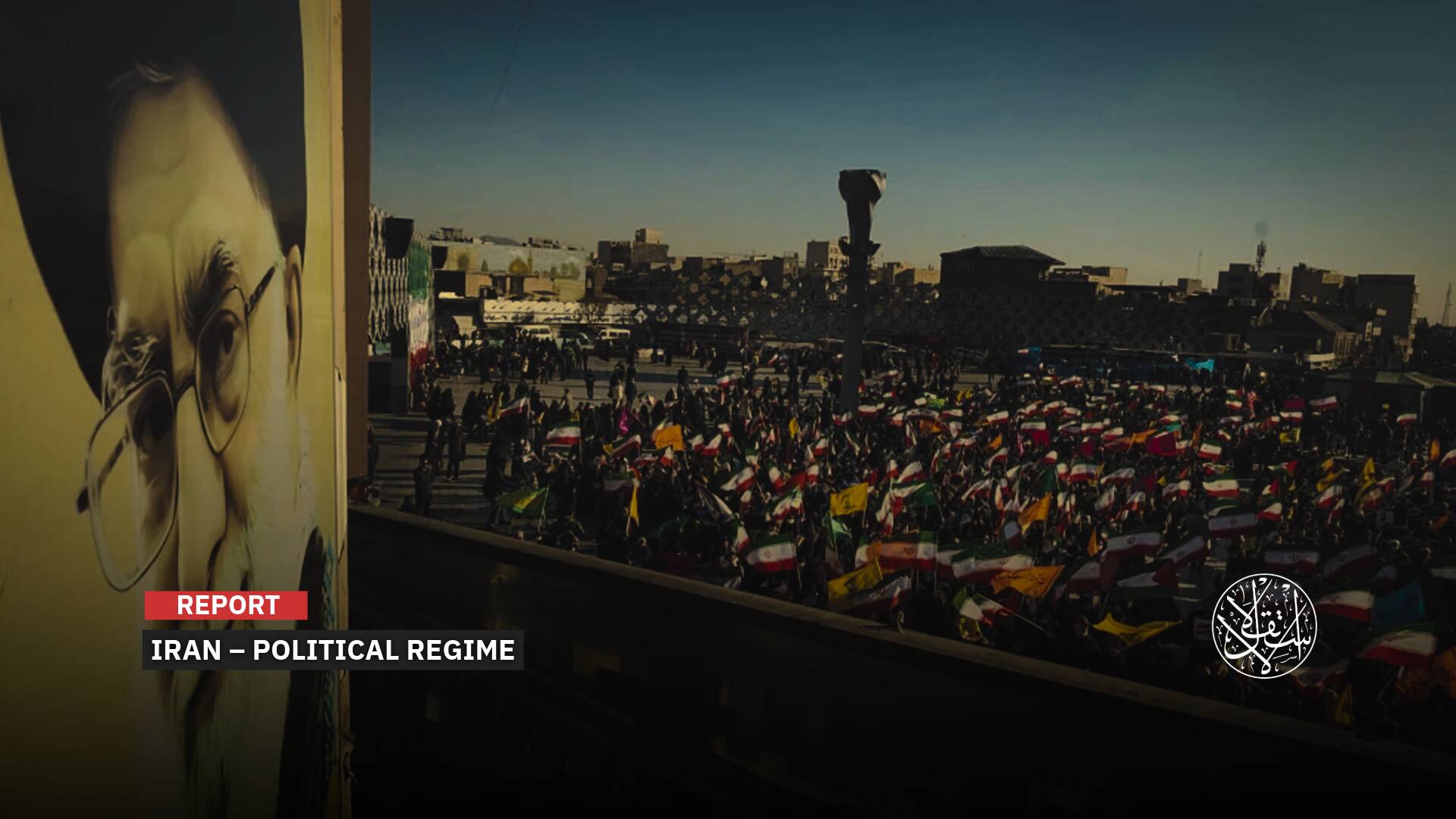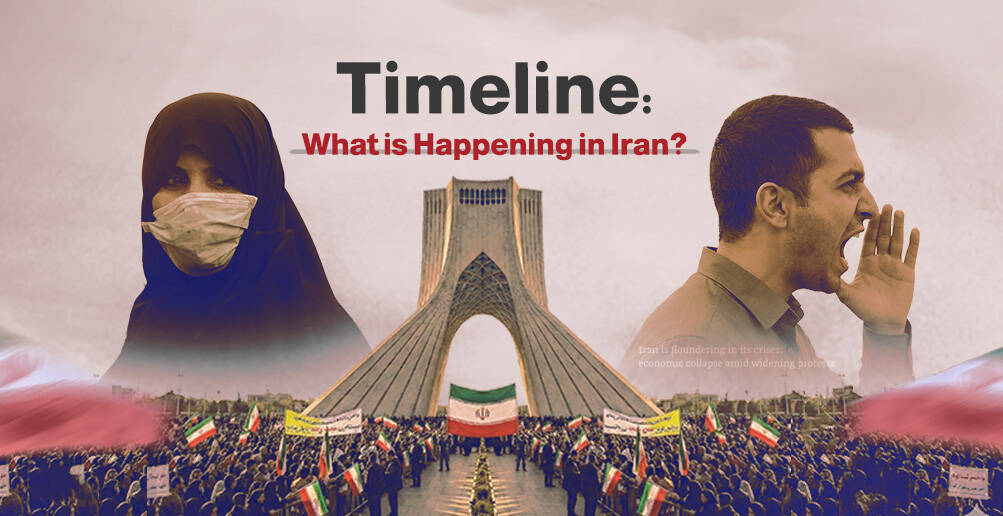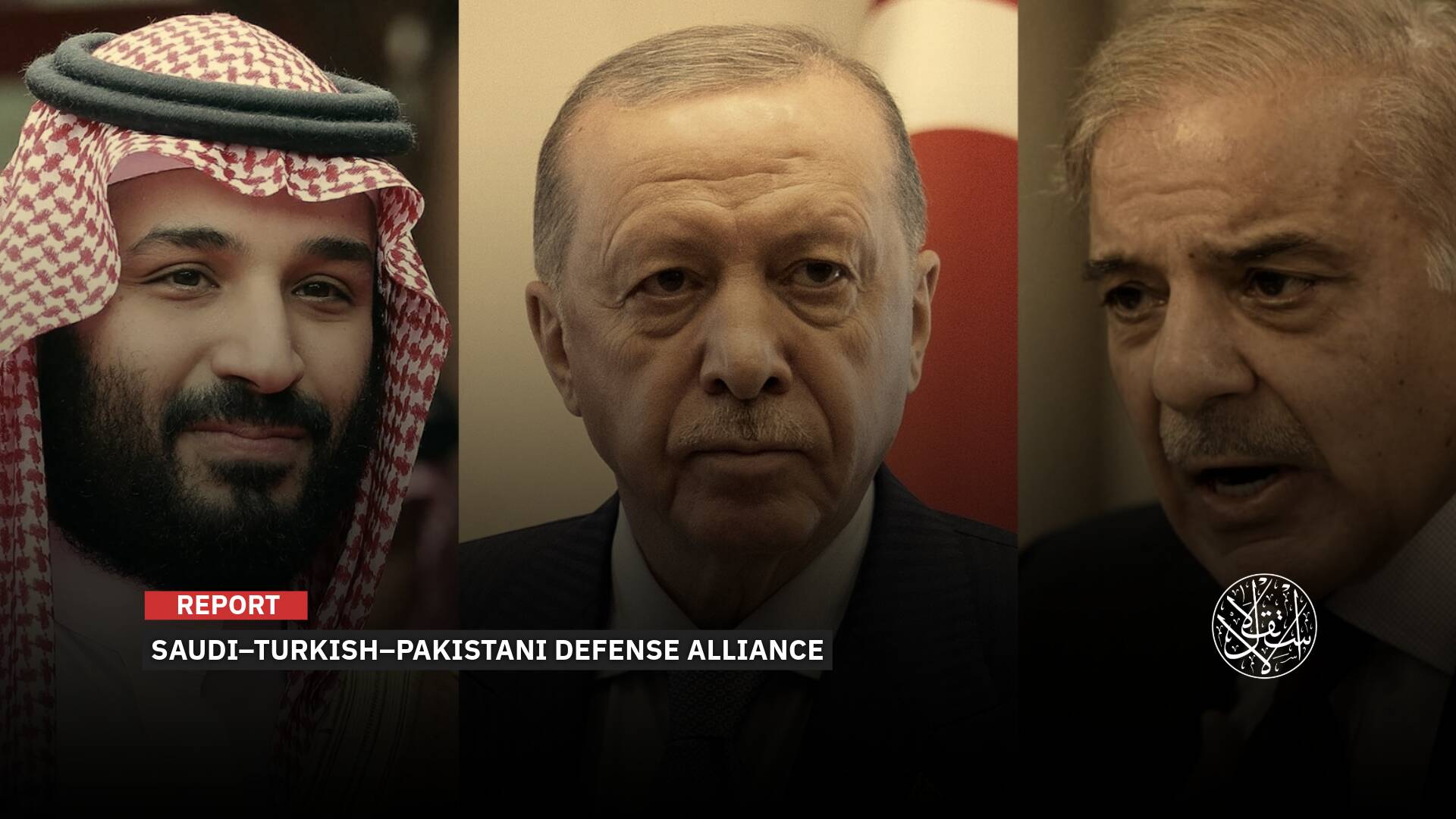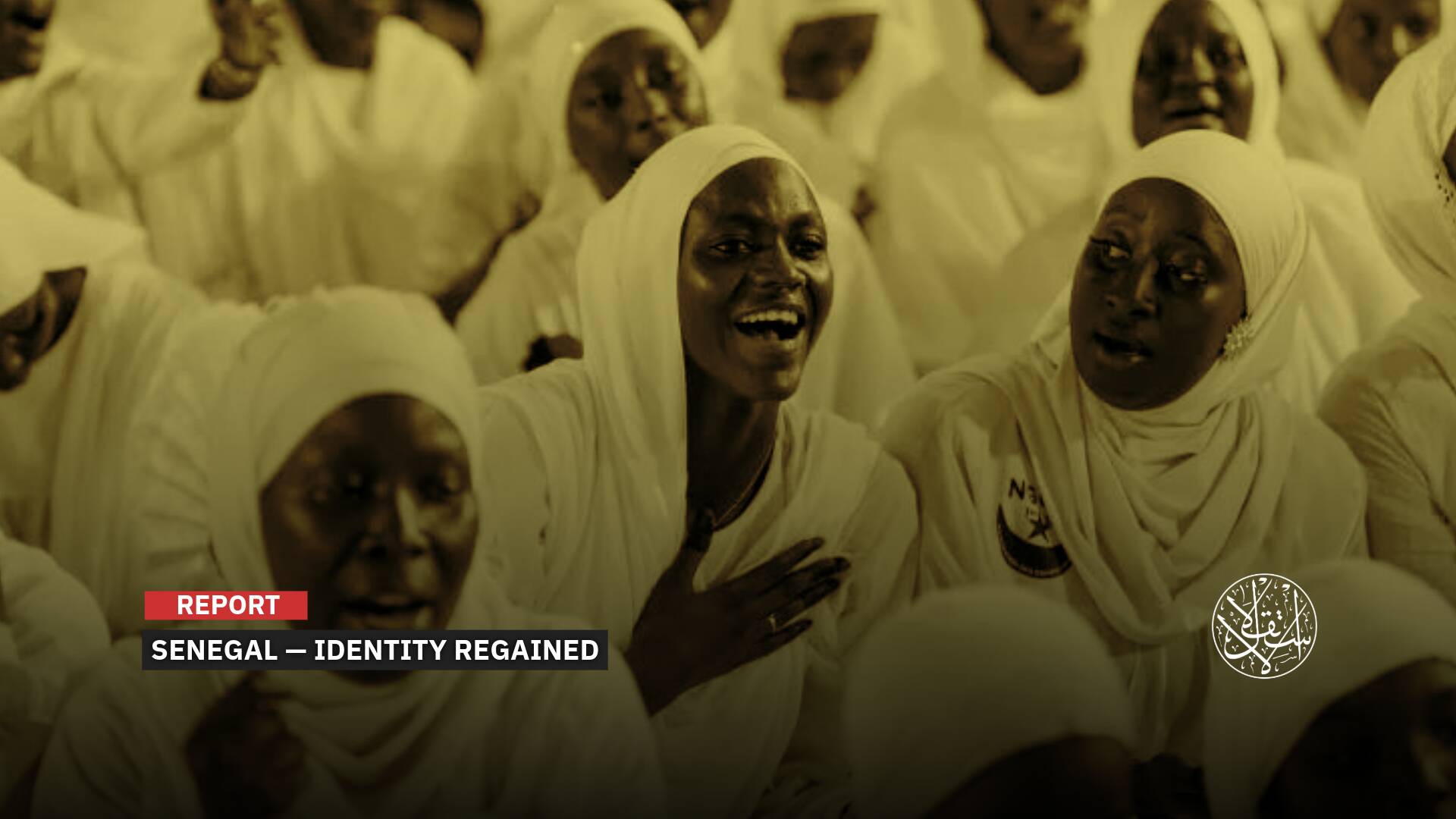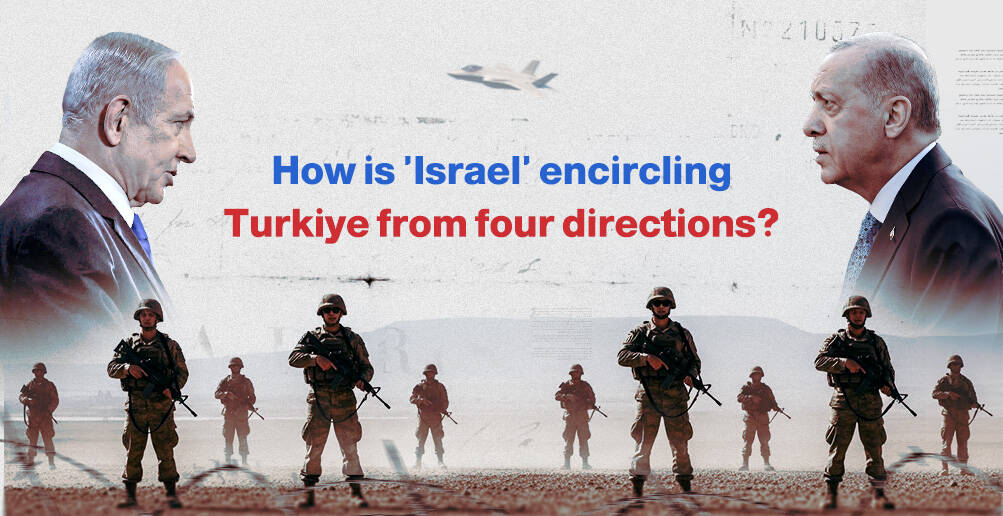Iranian Researcher: ‘Tehran's Regime is Fragile and Will Not Engage in Direct War with Israel’ (Exclusive)

“Non-Persian ethnic groups and Sunni Muslims are the greatest concerns for the Iranian regime.”
In an interview with Al-Estiklal, Iranian researcher and dissident Yousef Azizi stated that the Iranian regime is unlikely to engage in direct conflict with “Israel” or the United States, opting instead for threats. However, he noted that the regime might carry out a strike against “Israel” or launch attacks in the Gulf or other countries, either through the Revolutionary Guard or its regional proxies.
Azizi explained that "the Iranian regime has pushed a reformist figure into the presidency because it anticipates the return of the Republican candidate Donald Trump to lead the U.S. The regime also sought to give the West the impression that President Masoud Pezhkishan is someone with whom they can negotiate."
The Iranian researcher highlighted another internal reason for the regime's support for Pezhkishan: it aimed to create a respite domestically, especially since Pezhkishan promised to address the injustices and discrimination faced by non-Persian peoples, such as Arabs, Turks, Kurds, Baluchis, and Sunnis.
Azizi emphasized that the regime's primary concern is the issue of non-Persian ethnicities. Consequently, Pezhkishan asserted during his election campaign that Arabs in Iran are oppressed, their oil and gas are stolen, and similarly, Baluchis and Sunnis are persecuted in the country.
The researcher also mentioned that among the names currently circulating as potential successors to Supreme Leader Ali Khamenei are his son Mojtaba and another figure known as Ayatollah Mirbagheri, a hardliner with a faction called the "Resistance Current." He noted that former presidential candidate Saeed Jalili is one of his prominent supporters.
Yousef Azizi is an Iranian dissident and writer from the Arab Ahvaz region, contributing to various newspapers and appearing on numerous Arab and international television channels. He is also the Secretary-General of the Center for Combating Racism and Discrimination Against Arabs in Iran.
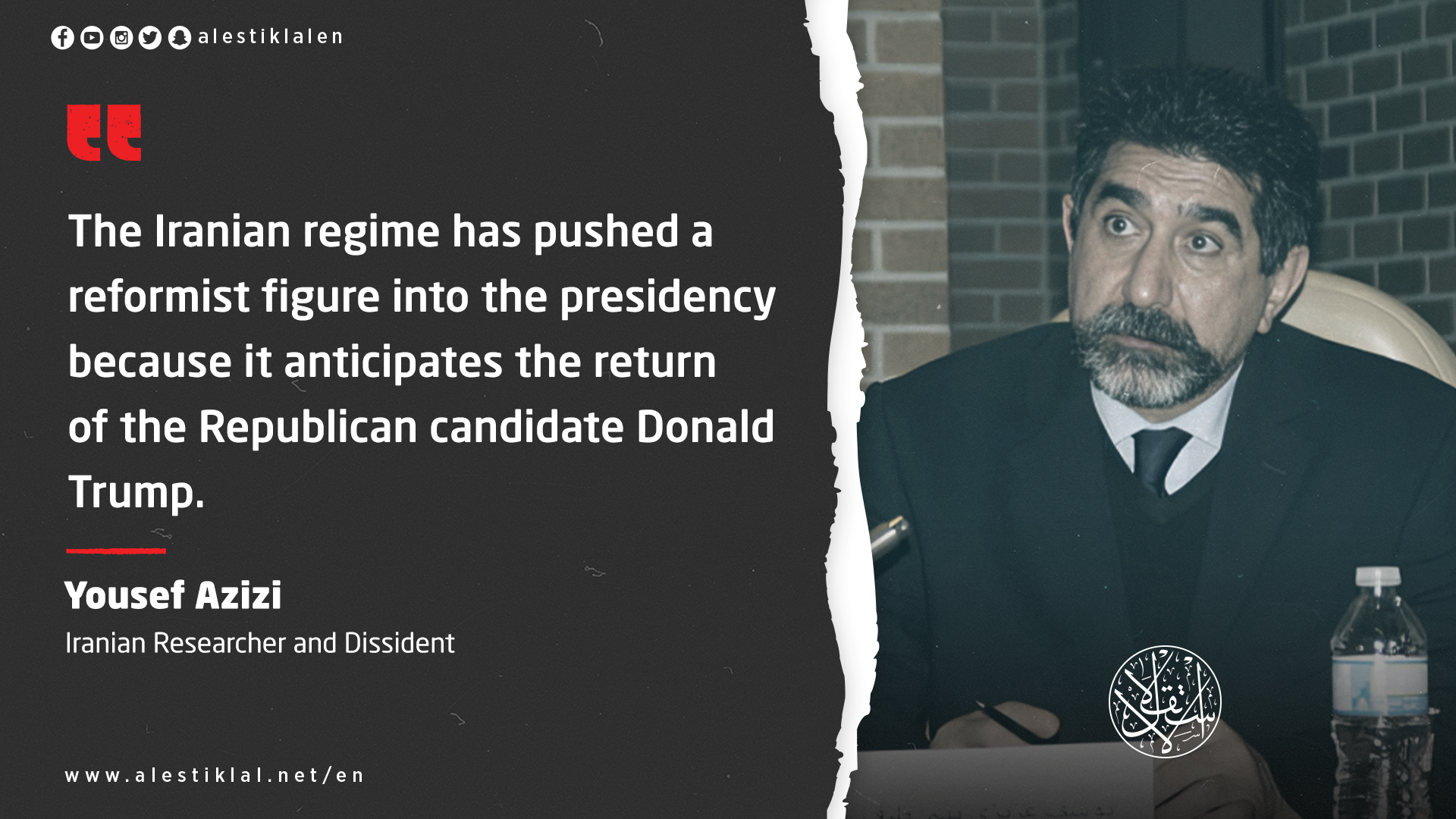
Iran and ‘Israel’
• In your opinion, where might the conflict between Iran and Israel lead after the assassination of Hamas' Political Bureau Chief Ismail Haniyeh in Tehran?
The Iranian regime presents itself to the outside world, particularly to the Arab world, as powerful, but internally it is fragile and unable to confront its adversaries.
For over a decade, Israel has been targeting Iranian presence in Syria, killing numerous Revolutionary Guard leaders and their affiliates without Iran retaliating.
Iran had justified its lack of response by claiming a policy of strategic patience. However, when Israel bombed the Iranian consulate in Damascus on April 1, 2024, the Iranian regime could not avoid responding.
We saw the Iranian response on April 13, with approximately 400 missiles and drones launched at Israel, but only a few struck their target. Therefore, Iran now understands that initiating a direct war with Israel would prompt American intervention.
Given that the Iranian regime is aware of its internal instability, it is reluctant to engage in direct confrontation with Israel, the United States, or other Western countries.
• Does this imply that Iran is also concerned about its regional gains, specifically its influence in four Arab capitals?
The Iranian regime might carry out a strike against Israel or undertake actions in the Gulf or other countries. Additionally, the Revolutionary Guard has stated that the response will be through resistance and Iran, leaving the door open.
In recent years, the regime has used its regional proxies in Iraq, Yemen, Lebanon, and Syria to conduct attacks against Israel.
Therefore, I doubt that Tehran will strike directly within Israeli territory as Tel Aviv did by violating Iran's sovereignty or execute a symbolic attack after coordinating with the Americans.
Iran does not wish to enter into direct war with the United States and Israel; it prefers to rely solely on threats.
It is well aware that if it delivers a significant blow to Israel, the Western response would be stronger, or it could prevent missiles and drones from reaching Tel Aviv. Hence, it avoids such actions.
For instance, when the United States killed Iranian Quds Force Commander Qassem Soleimani in January 2020, Iran's response was weak and coordinated with the Iraqi government.
The latter informed President Donald Trump about the attack, and afterward, they targeted the al-Asad base in Iraq, resulting in no American casualties.
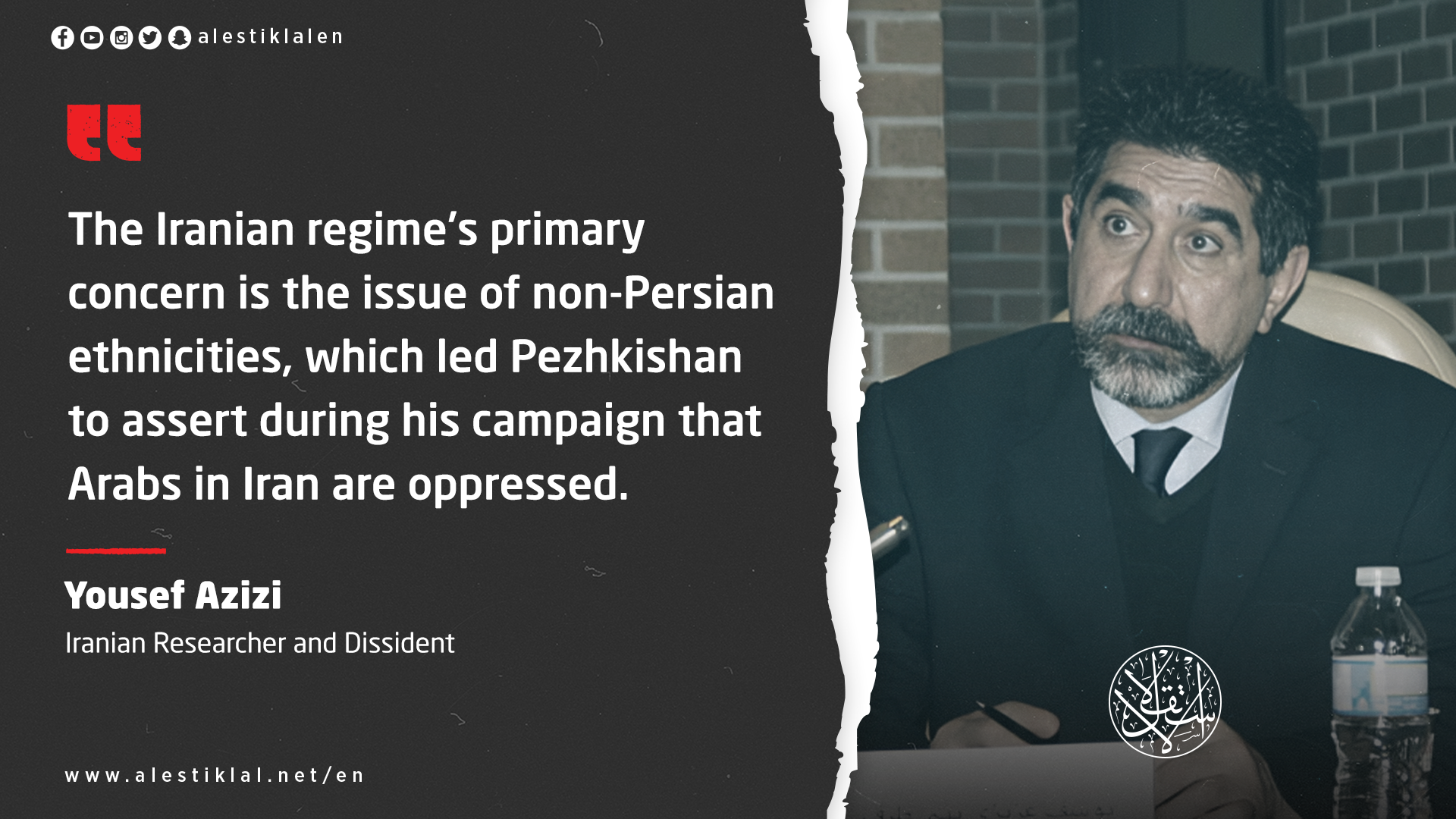
Reformists in Power
• What does it signify for a reformist figure to assume the presidency of Iran at this time? Did the regime push for Masoud Pezhkishan's rise to the presidency?
In the 2021 presidential elections, the only significant candidate was Ebrahim Raisi, a conservative aligned with Supreme Leader Ali Khamenei's views. The other candidates were not competitive, leading to a low voter turnout of 47%.
Similarly, in the parliamentary elections for the Iranian Shura Council [the highest adjudicatory body in Iran] in March 2024, voter participation was also low, around 41%, according to figures from Iranian authorities.
The protests that swept Iran following the death of young Mahsa Amini in 2022, which lasted several months and nearly destabilized the Iranian regime, were also significant.
All these factors prompted the Iranian intelligence leaders to warn Supreme Leader Ali Khamenei that continuing with a lack of competitive elections—given that Iran lacks political parties—would lead to the regime's downfall.
Consequently, Khamenei and the Shura Council decided to endorse Masoud Pezhkishan. This decision was based not only on Pezhkishan's reformist stance but also on his Azerbaijani-Turkish ethnicity.
The Iranian regime effectively addressed two issues by supporting Pezhkishan: he is both a reformist and a Turkic minority, as one-third of Iran's population is Azerbaijani Turkish.
The decisive factor in Pezhkishan's victory over his conservative rival, Saeed Jalili, was the votes he secured from Azerbaijani-majority provinces.
This strategic move was intended to encourage greater voter participation. Despite this, turnout was around 40% in the first round, indicating a 60% boycott, and approximately 48% in the second round, with over 50% abstaining.
• Will Iran’s foreign policy change under a reformist president?
The aim of bringing Pezhkishan to power and ensuring his victory, given that he has both reformist and Azerbaijani-Turkish support, was to prepare for a potential presidency of the Republican Donald Trump in the United States.
Thus, the Iranian regime needed a reformist figure to assume the presidency to present a moderate face to the Europeans, as the election of a conservative like Saeed Jalili might provoke a confrontation with a possible Trump administration.
Internally, the regime sought to provide some relief, especially since Masoud Pezhkishan promised to lift restrictions on numerous websites and address the grievances of non-Persian communities such as Arabs, Turks, Kurds, Baluchis, and Sunnis.
Pezhkishan also pledged during his campaign to reduce the strictness of the morality police towards Iranian women. These measures were recommended by Iranian intelligence thinkers to Khamenei as a way to ease social tensions within Iran.
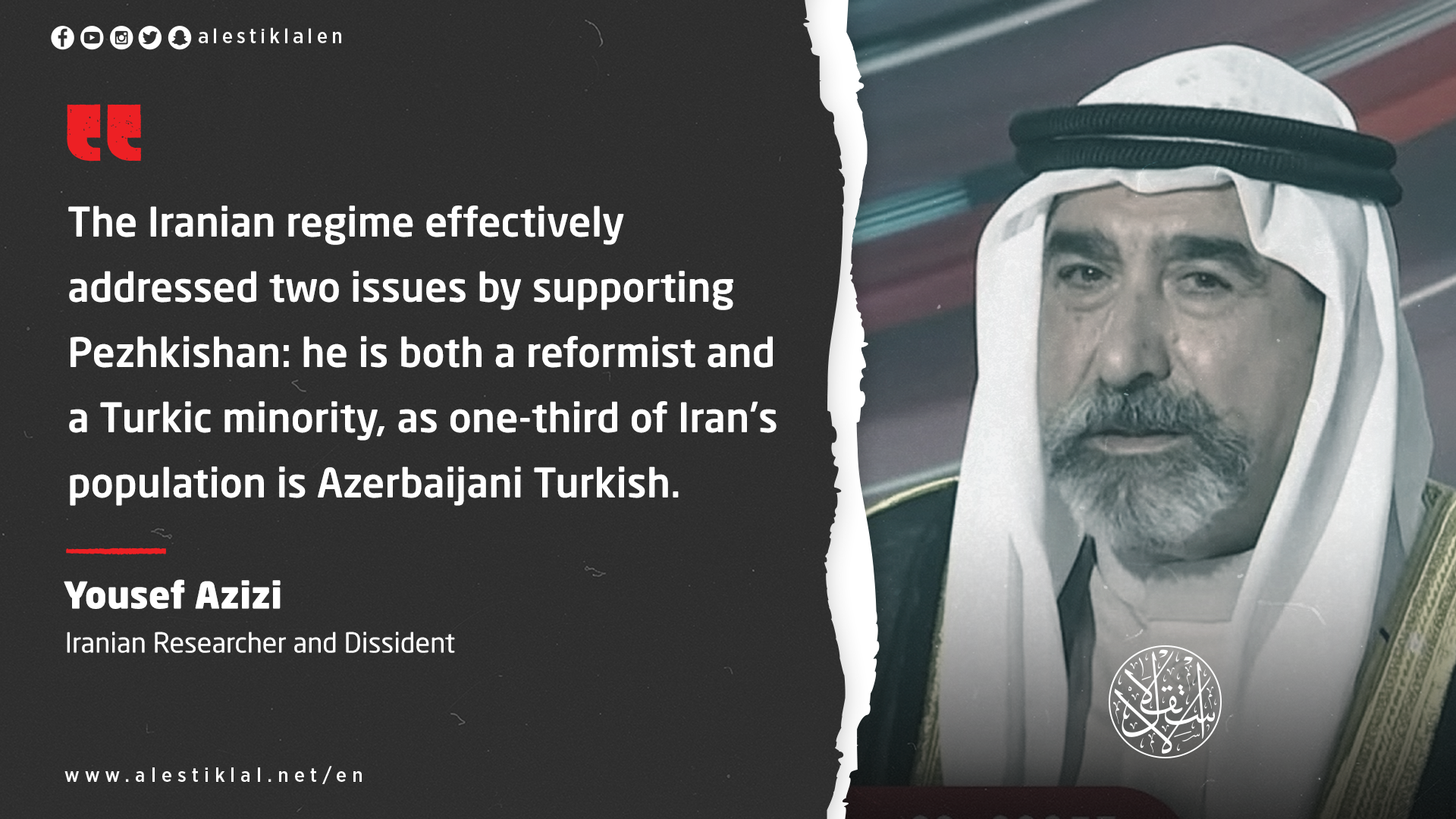
Nuclear Agreement and Sanctions
• Do you foresee any progress on the nuclear agreement during Masoud Pezhkishan's presidency, following the near standstill in negotiations under his predecessor, Ebrahim Raisi?
Talks between Tehran and Washington were held in Oman during the final phase of Ebrahim Raisi’s presidency. This was because the Iranians had come to the realization that Western sanctions had severely impacted Iran.
As a result, they began preliminary negotiations with the United States to resume the 2015 nuclear agreement, which was terminated by Trump in 2018.
If Democratic candidate Kamala Harris were to win the U.S. presidency, it would likely be easier for the Iranians. This is because the Iranian lobby in the United States has more influence with Democrats, as evidenced during the presidency of Barack Obama, who negotiated the nuclear agreement with Iran.
• If Republican candidate Donald Trump were to come to power in the United States, how would he handle the nuclear issue with Iran?
Trump’s campaign statements indicate that he does not want Iran to develop nuclear weapons and does not mention issues related to its affiliated militias or ballistic missiles. Therefore, Iran might be more willing to negotiate on the nuclear file if faced with increased American pressure, making a deal a possible outcome in this context.
• How do you see the future of the Iranian regime if Western sanctions and internal dissent persist?
The Iranian regime relies on a range of tactics to maintain its grip on power, including repression and the use of religious ideology. While this ideology still influences society, it is opposed by 60% of the population, with only about 20% actively supporting and defending it.
Approximately 80% of the Iranian population is either reformist or opposition, so the regime is acutely aware of its position within Iranian society. However, this does not mean it will collapse in a week, a month, or a year.
The regime often engages in some degree of relief for Iranians, particularly concerning elections, and maintains competition between factions (reformists and conservatives), knowing when to tighten or loosen its grip.
The Protests, to Where?
• What caused the widespread protests in Iran, which intensified between 2019 and 2022, particularly after the killing of Mahsa Amini, to come to an end?
The factors driving the protests remain present in Iran. Firstly, there is the blatant discrimination against women. Secondly, the ethnic oppression of non-Persians continues. Thirdly, there is a severe class disparity in society.
Iranian prisons are still filled with female activists who oppose the regime's policies. Moreover, Iranian citizens continue to be deprived of education in their native languages. This affects Kurds, Arabs, Baluchis, and Azerbaijani Turks, who represent the largest percentage of detainees and those sentenced to death in Iran.
Despite the Iranian constitution stating that Arabic is the country's second language, the regime does not permit millions of Arabs in Ahvaz to use it. Instead, they are compelled to use Persian from elementary school, a policy affecting about 50% of Iranians.
There are also other forms of ethnic oppression in Iran that reach the level of racism against Arabs.
Due to Iran's neoliberal economic system—relying heavily on the private and mixed sectors—workers, teachers, and retirees are among the most oppressed classes in the country. Consequently, daily demonstrations emerge from these groups demanding their rights and better conditions.
• Do regions such as Arab Ahvaz, Kurdistan, Baluchistan, and Azerbaijan, among others with Sunni and Kurdish majorities, still concern the regime?
Yes, among the three factors mentioned, the most concerning for the Iranian regime is the issue of non-Persian ethnicities.
Pezhkishan highlighted during his campaign that Arabs are oppressed in Iran and their oil and gas are exploited, as are the Baluchis and Sunnis.
Consequently, most of Pezhkishan’s support came from regions with Azerbaijani-Turkish, Kurdish, Arab, and Baluchi majorities, while regions with a Persian ethnic majority supported his rival, Saeed Jalili.
The greatest threat perceived by the Iranian regime comes from non-Persians and Sunnis. Due to deep-seated oppression and unrest in Baluchistan, there are almost daily clashes and killings of officials and civilians, creating a situation akin to a civil war.
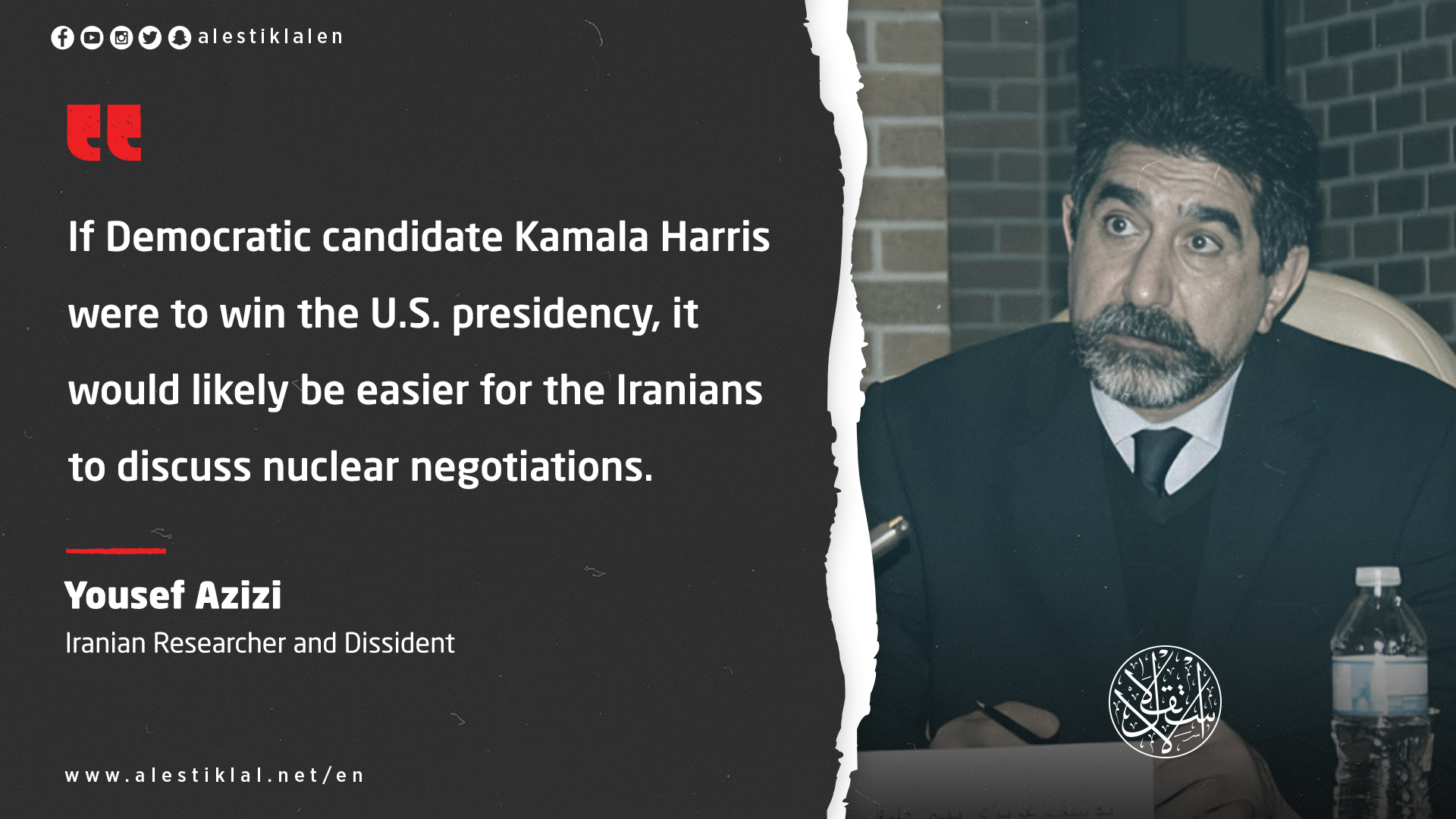
Leadership and Opposition
• Who will succeed Khamenei as Supreme Leader of the Iranian Revolution?
The regime emphasizes keeping this issue concealed, with a committee within the Assembly of Experts for Leadership selecting suitable candidates while maintaining a high level of secrecy.
Currently, the prominent names being discussed are Mojtaba, Ali Khamenei's son, and Ayatollah Mirbagheri, a hardliner with a faction known as the Resistance Current. Saeed Jalili, a former presidential candidate, is one of Mirbagheri's prominent supporters.
What is the reality of the internal power struggle within the Iranian system, particularly among its security and military institutions?
Despite the existence of internal strife, Khamenei's continued presence prevents it from escalating, especially between the military and the Revolutionary Guard, and between the Guard and intelligence agencies.
Within the Revolutionary Guard, there is a group known as the unit of the supreme leader’s representatives, overseen by clerics, which allows Khamenei to control all security and military institutions.
However, this situation could change if Khamenei were to pass away, as it would take time for his successor to establish similar control.
The internal conflict in Iran is intense among various factions within the Revolutionary Guard. There are groups aligned with different elements within the regime itself, including some that follow the former royalist direction from the Shah's era.
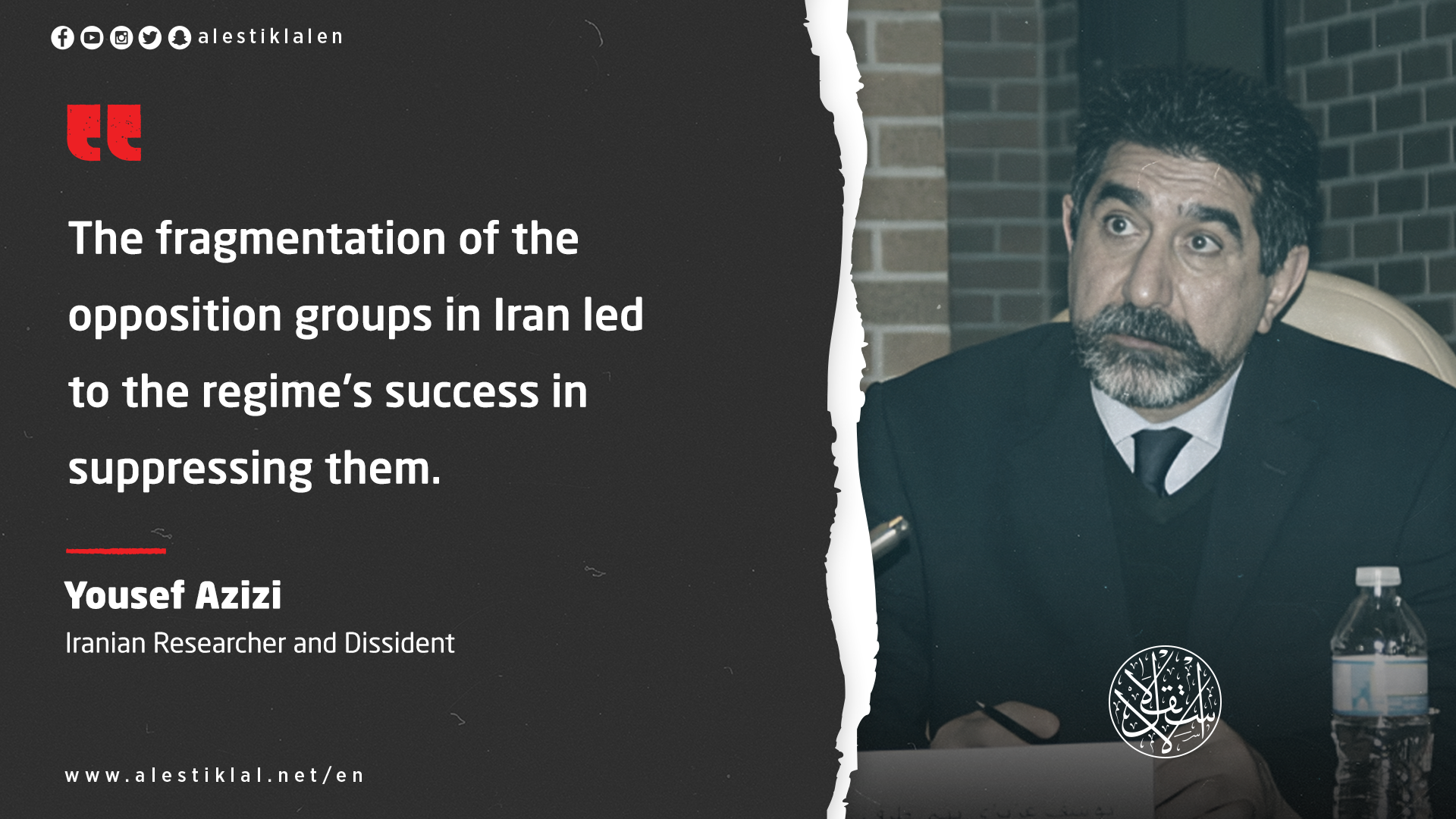
• What is the effectiveness of opposition movements within Iran, such as the Mojahedin-e Khalq (MEK), as well as Arab, Kurdish, and Baluchi groups?
These movements had some impact, particularly during the protests following the death of Mahsa Amini in 2022, where they mobilized protesters. However, the fragmentation of the opposition groups led to the regime's success in suppressing them.
For instance, the royalist faction led by the Shah’s son, Reza Pahlavi, is completely at odds with the Mojahedin-e Khalq. This illustrates the divisions among the significant opposition groups within Iranian society.
There are five main factions in Iran: the royalists, the Mojahedin-e Khalq, non-Persian ethnic groups, leftists, and Persian nationalists.
These groups have not unified their efforts, and their internal conflicts have prevented them from effectively challenging the regime. The 2022 protests had the potential to destabilize the system, but the discord and fragmentation among opposition groups thwarted this possibility.
Currently, all eyes are on the new reformist president, Masoud Pezhkishan, to fulfill his promises, especially regarding economic, social, human rights issues, non-Persian ethnic groups, and women's rights, among other matters.



